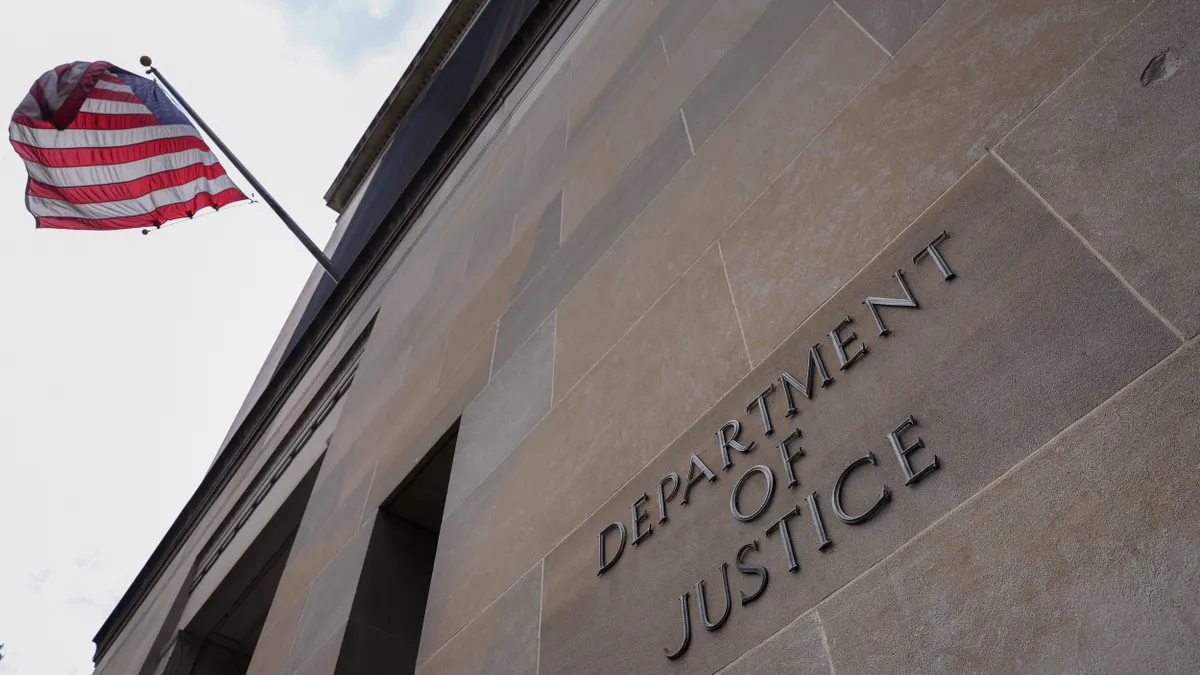Dive Brief:
- The Federal Trade Commission and Department of Justice issued a joint statement last week supporting a lawsuit brought by Texas Attorney General Ken Paxton and a coalition of Republican-led states alleging that BlackRock, Vanguard and State Street violated antitrust laws and conspired to artificially restrict the coal market.
- “The [FTC and DOJ] have interests here in ensuring the correct application of the antitrust laws, including in America’s energy markets,” the May 22 statement said. “Doing so protects Americans from anticompetitive behavior that reduces the production of domestic energy, raises energy prices for consumers and businesses, and undermines America’s energy dominance.”
- The joint statement of interest begins to lay out how Attorney General Pam Bondi will direct the DOJ to fulfill an executive order from President Trump targeting state climate change and ESG policies and initiatives. The statement cites this order, as well as another declaring a national energy emergency, as aspects of the United States’ interest in the case.
Dive Insight:
Paxton initially filed the lawsuit against the nation’s three largest asset managers in November, supported by 10 other Republican-led states. The lawsuit alleges BlackRock, Vanguard and State Street acquired “substantial” holdings in public coal companies and then pushed those companies to reduce their output. Paxton accused the companies of forming “a cartel to rig the coal market” in a press release at the time.
BlackRock and State Street called the allegations “baseless” in separate comments to ESG Dive at the time, and all three asset managers filed a motion to dismiss the lawsuit in March. Their motion said the states have offered “no plausible facts” to support their claims and said the “case spins a farfetched theory.”
While the FTC and DOJ’s statement affirms that antitrust laws allow for passive investing, corporate governance-focused shareholder advocacy and active investing “that doesn’t harm competition,” they said the allegations in this case go further than that and alleges “the coordinated use of the power of horizontal shareholdings to distort output and prices in energy markets.”
The agencies said the nation’s official view is that the asset managers have misunderstood the standards and exceptions to the applicable antitrust laws, and the court should reject the motion to dismiss.
DOJ said in a release that this represents “the first formal statement by the agencies in federal court on the antitrust implications of common shareholdings.”
“We need competition in coal production now more than ever to help fuel American energy dominance,” DOJ Antitrust Division Assistant Attorney General Abigail Slater said in an accompanying release. “We will not hesitate to stand up against powerful financial firms that use Americans’ retirement savings to harm competition under the guise of ESG.”
BlackRock said in a May 22 statement that the agencies’ “support for this baseless case undermines the Trump Administration’s goal of American energy independence.”
“As we made clear in our earlier motion to dismiss, this case is trying to re-write antitrust law and is based on an absurd theory that coal companies conspired with their shareholders to reduce coal production,” BlackRock said. “Forcing asset managers to divest from coal companies will harm their ability to access capital and invest in their businesses and employees, likely leading to higher energy prices.”
The FTC authorized staff involvement in a 2-0-1 vote with one recusal, the agency said May 22; Trump fired the agency’s two Democratic commissioners in March. The agency said the statement shows that “asset managers and institutional investors may be held liable under Section 7 of the Clayton Act when they use their stock holdings in multiple competitors to achieve anticompetitive goals.”
A Vanguard spokesperson told ESG Dive that “the facts show Vanguard has stayed well within [the legal] construct.”
“Though we have concerns with many of the legal interpretations promoted by the agencies, Vanguard appreciates their explicit acknowledgement that the antitrust laws allow these three things: ‘passive fund investing,’ ‘shareholder advocacy for better corporate governance’ and ‘active investing that doesn’t harm competition,’ the firm said in an emailed statement Wednesday.
State Street did not immediately respond to a request for comment.












